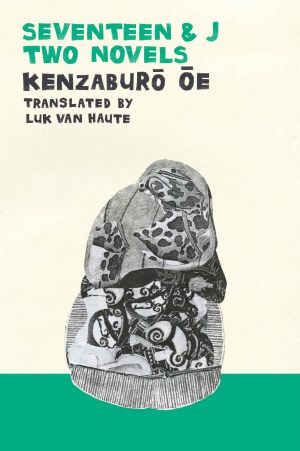Seventeen & J · Two Novels

- Authors
- Ōe, Kenzaburō
- Publisher
- Foxrock Books
- Tags
- bisac code 1: fic000000
- ISBN
- 9781682190159
- Date
- 1963-01-01T00:00:00+00:00
- Size
- 0.27 MB
- Lang
- en
By the winner of the 1994 Nobel Prize for Literature
In Seventeen , the story of a lonely seventeen year old who turns to a right-wing group for self-esteem, and J, the story of a spoiled, young, drifter son of a Japanese executive, Ōe shows us a world where the values that had regulated life had been blown to smithereens along with Hiroshima and Nagasaki: what confronts his heroes now is a gaping emptiness.
Seventeen ’s lost young man is in the throes of becoming a right wing activist and assassin. He feels his identity for the first time in the enervating rush of murderous violence. The story has enormous topicality and vibrancy for today. In J, our protagonist’s erotic excitement comes as a “chikan” who rubs himself against women on crowded trains. He refuses to otherwise participate in the drab, everyday world, which he feels would only be self-deceptive. He can only feel complete while attaining “the absolute ecstasy of total action.” Of course this action of sexual assault can bring arrest, disgrace, and imprisonment. As always, Ōe treats his subjects not with pity or disdain, but with sympathy.
Kenzaburō Ōe was born in 1935 on a remote part of Japan’s Shikoku island. He is credited in part with the modernization and internationalization of Japanese intellectual tradition in the latter half of the twentieth century. Storytelling played a prominent role in Ōe’s childhood. In particular, his grandmother provided an early, defiant framework for the novellas for which he gained recognition early in his career, including Seventeen and The Death of a Political Youth. Her stories were an antidote to the strong imperial influence of his elementary education—crucially, during the period of Japan’s descent into the Second World War. Propelled by his belief in democracy’s viability and necessity following the war, he left for Tokyo to study Rabelais and quickly became enmeshed in the cultural life of the city. He began publishing while still a student and gained a name as a stylist even more accomplished than Yukio Mishima, ten years his senior. In 1994, he received the Nobel Prize for Literature.
Ōe’s distinguishing quality in Tokyo’s literary landscape is his internationalism: his preoccupation with French and American theory; his travels to meet luminaries including Sartre and Mao Zedong. Preoccupation with oppositions is manifest in his work as well—commitment and disavowal, action and inaction, imperial and democratic, political and personal (particularly sexual) life, to name a few—but equally recurrent is his explicit faith in the healing power of the practice of art, and his conviction in writing as a means to survive personal hardship. Politically engaged, he has consistently spoken out over the years on behalf of pacifism and against nuclear power.